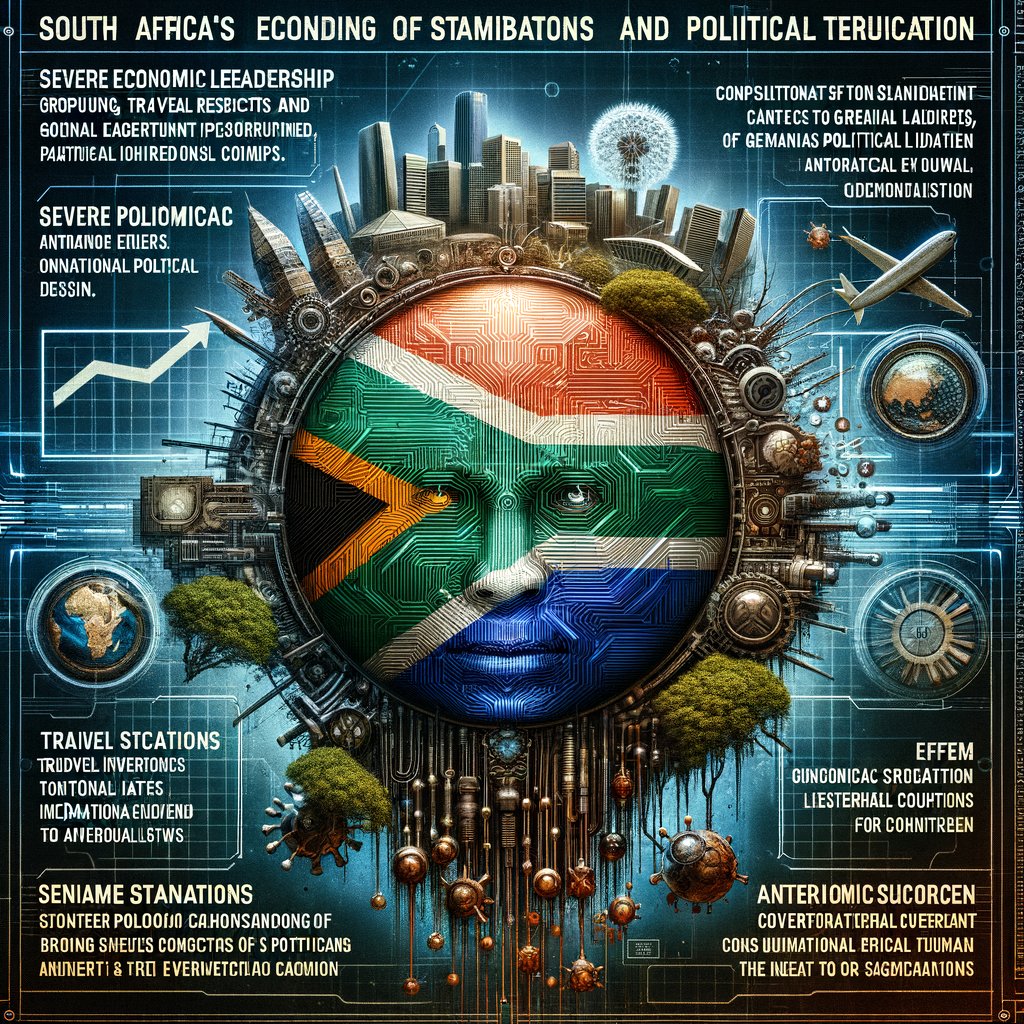Image created by AI
Rob Hersov Forecasts Economic Turmoil for South Africa Amidst Political Challenges
Prominent capitalist activist Rob Hersov recently articulated a severe warning about South Africa's economic and political trajectory, predicting a crisis reminiscent of 1985 or worse. Speaking from Dubai before attending the Alliance for Responsible Citizenship conference in London, Hersov didn't mince words about the impending challenges facing South Africa, particularly pointing fingers at what he perceives as failing leadership under the ANC and President Cyril Ramaphosa.
Hersov vehemently criticized the Government of National Unity (GNU), disparaging it as ineffective and a facade to maintain political control, rather than a genuine effort to address South Africa's pressing issues such as corruption, crime, and economic stagnation. He dismissed the current governmental efforts towards achieving a 3% economic growth as unrealistic, especially when compared to neighboring Botswana's better performance.
The critique extended to the anticipated repercussions of South Africa’s foreign policies which might provoke severe economic sanctions from the United States. Hersov predicted that such sanctions could lead to a disastrous economic downturn, with significant travel restrictions and harsh tariffs specifically targeting political figures and potentially placing them on international watchlists.
Amidst his criticism, Hersov suggested a consolidation of conservative forces within the country, proposing a new political coalition under the banner “South Africa First” to realign the nation's course. He championed this initiative as a necessary counter to the ANC’s dominion, which he argues, thrives on the populace's reliance on state support due to poor socio-economic conditions— a tactic he describes as Soviet-inspired.
Furthermore, Hersov underscored the potential of the U.S.’s stern stance against South Africa’s policies to act as a catalyst for change within the nation. He mentioned former U.S. President Donald Trump’s executive order, which could facilitate U.S. citizenship for skilled South Africans as a critical move that might result in a significant brain drain unless countered by effective national leadership and reform.
Looking forward, Hersov outlined two possible scenarios for South Africa in the next five years: a stagnation with minimal growth and continued emigration of skilled individuals, or a severe economic collapse. Nevertheless, he hoped that the looming crisis would catalyze necessary changes and called for the recognition of the ANC as a detrimental force needing overhaul.
With the mounting national and international pressure, and an assertive voice like Hersov’s spotlighting these issues, it remains to be seen whether South Africa can steer away from its current path and implement genuine reforms or if it will continue on a downward spiral that could have profound implications for its future stability and prosperity.










